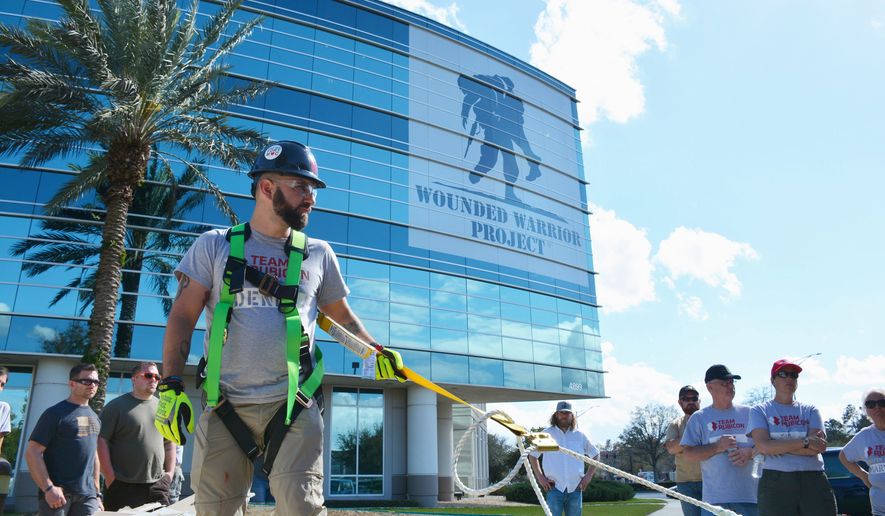You may have heard the sound of riders revving thousands of motorcycle engines as they descended on Washington, D.C., this weekend. The sounds serve to remind a nation about prisoners of war (POW) and servicemembers missing in action (MIA). This weekend marks the 30th annual Rolling Thunder motorcycle demonstration in our nation’s capital. While the freedom ride calls for a full accounting of POW/MIAs, its organizers also advocate better care for all veterans.
That is a mission similar to the advocacy efforts of Wounded Warrior Project (WWP). WWP takes concerns of all veterans to Capitol Hill to push for better health care access; an extension of reproductive services for warriors who lost the ability to have children; and greater collaboration between the government, nonprofits and private organizations. Many of these efforts not only help today’s generation of wounded warriors, but all veterans who rely on care from the Department of Veterans Affairs (VA).
WWP connects warriors with one another and their communities and serves them through life-saving programs targeting mental health, physical health and wellness, career and benefits counseling, and long-term support for the nation’s most seriously injured veterans.
“Wounded Warrior Project knows the sacrifice all servicemembers make when they answer the call for their nation,” said Lt. Gen. (Ret.) Mike Linnington, WWP chief executive officer. “It is why we remember the fallen and honor the missing on Memorial Day. By working with other organizations, we empower today’s veterans to live their fullest lives.”
WWP supports and partners with several nonprofits and veterans service organizations that are passionately caring for our nation’s military, families, veterans and caregivers. By working together, WWP is able to bring veterans and their families the best in programs and services to address current needs and any that may emerge. It is vital to work together to reach the millions of veterans in need.
One of the needs of veterans is greater access to mental health care. By connecting with other veterans through profoundly impactful WWP programs and services, warriors get out of their homes and see they are not alone. One program, a mental health support line, connects warriors and family members with a WWP staff member through weekly phone calls. Veterans get a chance to talk about nearly anything they want. These non-clinical calls provide mental support and lend an ear, often when it is most needed.
“When we reach out for help, sometimes we don’t even know what that means — or what we need,” said Army veteran Terrie Rigby. “I just knew I needed help. As a veteran, I felt lost. As a wife and daughter of soldiers, I watched the men in my life — whom I love and know so well — become strangers to one another and me. The WWP phone support line gives me a safe, nonjudgmental forum to find my footing. After six years, I know the future is bright.”
Multi-day mental health rehabilitative workshops challenge veterans to face their post-traumatic stress disorder (PTSD) head-on. By setting and reaching goals along with other warriors, veterans can reduce the symptoms of PTSD and find new coping skills.
Warrior Care Network is an innovative collaboration between WWP and four top academic medical centers. It provides a year’s worth of therapy compressed into intensive outpatient clinics over a two- to three-week span, along with additional follow-up care. One veteran who went through Warrior Care Network called it the hardest thing emotionally he has ever done.
“It was like a rebuilding,” Marine Corps veteran Joe Merritt said. “Prolonged exposure therapy drew out raw, primal emotions. I remembered things I had not recalled in a long time.”
WWP takes a comprehensive approach to mental health care, meeting warriors where they are in their recoveries. This may mean a more clinical approach, like Warrior Care Network to help treat symptoms of PTSD, or it could take a more social approach, like inviting a warrior to join other veterans at a service event or group outing.
Getting warriors back on track career-wise is another method of helping them. WWP career counseling bridges the gap from the military to the civilian workforce. By providing resume assistance, WWP helps translate experiences from military service, so recruiters understand a veteran’s immense value. WWP coaches warriors on the interview process, providing sample questions and feedback on answers. WWP also links veterans with networking opportunities to ensure they meet the right employers, while also educating companies about the benefits of wounded veterans.
WWP cannot accomplish the mission alone. Whether revving up the career search or shifting focus to mental health care, all veterans service organizations must work together to ensure the most successful future for veterans, while always honoring and remembering the fallen and missing servicemembers.
• John Roberts is the national service director of Wounded Warrior Project. Follow WWP at woundedwarriorproject.org, on Facebook, and on Twitter @WWP.




Please read our comment policy before commenting.